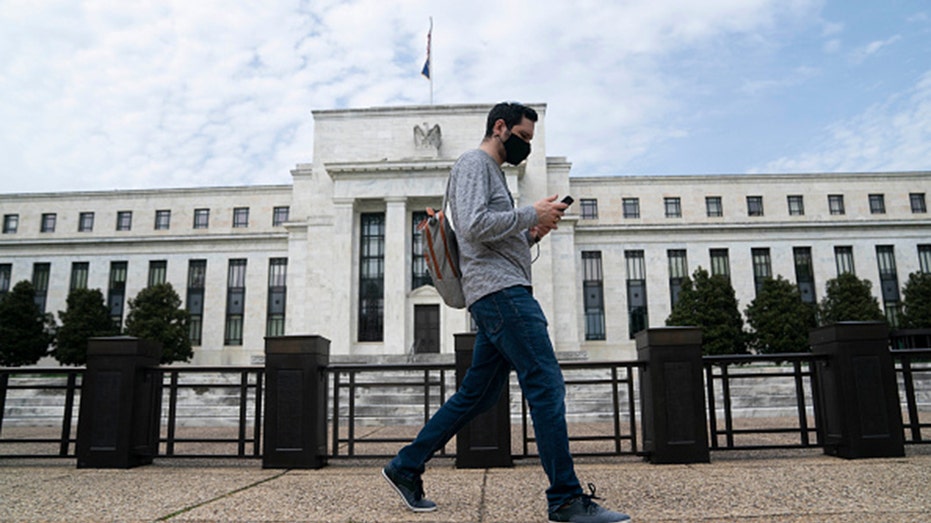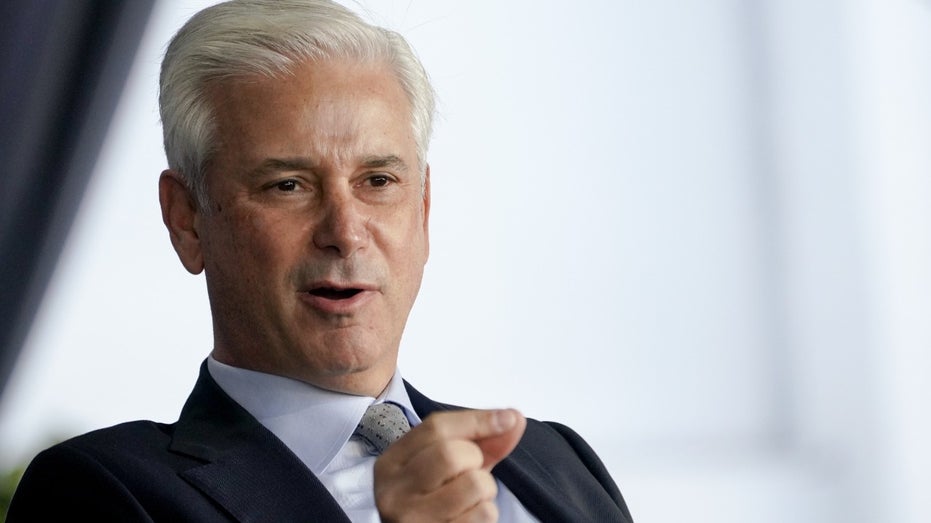Top CEOs bracing for an economic recession
Musk, Dimon among notable CEOs warning of looming recession
Inflation 'not going to be solved' on a soft landing: Ken Langone
Home Depot co-founder Ken Langone discusses the impact of inflation on the housing market, the Fed's 75 bps rate hike, recession risk in the U.S. and Biden's climate agenda.
Is the U.S. economy on track for a recession? According to the chief executives at some of the nation's top companies, the answer is yes.
With the Federal Reserve moving to tame sky-high inflation with a series of aggressive interest rate hikes, a growing number of CEOs are sounding the alarm over a coming economic downturn.
Fed policymakers last week approved a 75-basis point interest rate hike — the first since 1994 — as they race to catch up with runaway inflation, pushing the federal funds target range to 1.5% to 1.75%. Another hike of that magnitude could be on the table in July amid signs of stubbornly high inflation, Chairman Jerome Powell told reporters after the meeting, prompting investors to reassess the economic outlook.
Officials also laid out an aggressive path of rate increases for the remainder of the year. New economic projections released after the two-day meeting showed policymakers expect interest rates to hit 3.4% by the end of 2022, which would be the highest level since 2008.

A man wearing a mask walks past the U.S. Federal Reserve building in Washington D.C., the United States, on April 29, 2020. ((Xinhua/Liu Jie via Getty Images) / Getty Images)
Hiking interest rates tends to create higher rates on consumer and business loans, which slows the economy by forcing employers to cut back on spending. Mortgage rates are already approaching 6%, the highest since 2008, while some credit card issuers have ratcheted up their rates to 20%.
Here is a closer look at the CEOs who believe a recession could be looming on the horizon.
Tesla CEO Elon Musk
The world's richest man said in response to a tweet at the end of May that he believe the economy is likely headed for a recession — but he said there's a silver lining.
"This is actually a good thing," Tesla CEO Elon Musk tweeted. "It has been raining money on fools for too long. Some bankruptcies need to happen. Also, all the Covid stay-at-home stuff has tricked people into thinking that you don’t actually need to work hard. Rude awakening inbound!"

Elon Musk attends The Metropolitan Museum of Art's Costume Institute benefit gala celebrating the opening of the "In America: An Anthology of Fashion" exhibition on May 2 in New York. (Evan Agostini/Invision/AP / AP Newsroom)
Musk also reportedly announced plans to cut the number of salaried workers at the electric-car company after saying he had a "super bad feeling" about the economy.
JPMorgan Chase CEO Jamie Dimon
At the beginning of June, JPMorgan Chase CEO Jamie Dimon issued a dire warning about the state of the U.S. economy: Consumers, he said, should brace for a looming "hurricane," caused by an increasingly hawkish Federal Reserve, rising inflationary pressures and the Russian invasion of Ukraine.
The executive of the world's largest bank had previously said there were storm clouds forming on the economic horizon, but ratcheted up his warning amid signs that high inflation could be painstakingly slow to fall.
HIGH INFLATION COULD BE 'PAINSTAKINGLY SLOW' TO COME DOWN
"I said there were storm clouds. But I'm going to change it. It’s a hurricane," he said during a conference hosted by AllianceBernstein Holdings. "Right now it’s kind of sunny, things are doing fine, everyone thinks the Fed can handle it. That hurricane is right out there down the road coming our way. We don’t know if it’s a minor one or Superstorm Sandy. You better brace yourself."

JP Morgan CEO Jamie Dimon looks on during the inauguration the new French headquarters of JP Morgan bank, June 29, 2021 in Paris. (AP Photo/Michel Euler, Pool, File / AP Newsroom)
There were two main issues that Dimon said are worrying him: The Federal Reserve moving to unwind its $8.9 trillion balance sheet, deploying a less-known tool known as quantitative tightening that will further tighten credit for U.S. households as officials try to tame red-hot inflation. He also expressed concern about the Russian war in Ukraine, which has pushed oil prices to the highest level in years.
"Wars go bad. They go south. They have unintended consequences," he said.
Morgan Stanley CEO James Gorman
Morgan Stanley CEO James Gorman is raising the odds of an economic recession in the near future.
"It’s possible we go into recession, obviously, probably 50-50 odds now," Gorman said last week, before the Fed approved a 75-basis point interest hike. That's up from his earlier 30% recession-risk estimate.
FED RAISES INTEREST RATE BY 75-BASIS POINTS IN HISTORIC MOVE TO FIGHT INFLATION
Gorman said it's "unlikely" the U.S. tumbles into a "deep or long recession."
"I don’t think we’re falling into some massive hole over the next few years, I think eventually the Fed will get hold of inflation," he said. "You know that it’s going to be bumpy; people’s 401(k) plans are going to be down this year."
Wells Fargo CEO Charles Scharf
With the Federal Reserve moving rapidly to tame sky-high inflation by aggressively raising the benchmark federal funds rate, Wells Fargo CEO Charles Scharf said that it is likely there will be some economic fallout.

Charles Scharf, chief executive officer of Wells Fargo & Co., speaks at a panel discussion during the Milken Institute Global Conference in Beverly Hills, California, U.S., on Monday, Oct. 18, 2021. (Kyle Grillot/Bloomberg via Getty Images / Getty Images)
"It’s going to be hard to avoid some kind of recession," Scharf said in mid-May during a Wall Street Journal live event.
Still, the outlook is not entirely bleak: With consumers still spending and businesses financially healthy by most measures, the bank's chief executive said it will likely be a mild downturn.
GET FOX BUSINESS ON THE GO BY CLICKING HERE
"The fact that everyone is so strong going into this should hopefully provide a cushion such that whatever recession there is, if there is one, is short and not all that deep," he said.





















